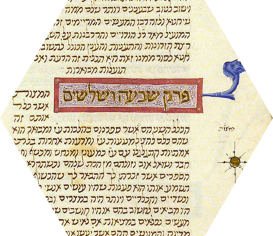Maimonides wrote the Guide of the Perplexed, Dalālat al-ḥāʾirīn, in Judeo-Arabic, but it was through the accurate Hebrew translation by Samuel ibn Tibbon that it was primarily read, studied, cited, and commented upon by medieval Jewish scholars. My episode focuses on Book III, chapter 37 of this Hebrew translation, Moreh ha-Nevukhim (1204, revised translation 1213), but always with an eye on the Arabic original. The chapter discusses the reasons for the commandments concerning idolatry, which were particularly important for Maimonides because, as he writes, “the intent of the whole Law and the pole around which it revolves is to put an end to idolatry [and] to efface its traces.” The special interest of the chapter for our project lies in its reference to “experience” (Arabic: tajriba; Hebrew: nissayon), the only such mention in the book. Maimonides explains here that certain medical practices that seem to reflect the practices of the idolaters are permitted if experience shows they are effective and can cure humans of their ailments. His distinction between experience and reasoning (Arabic: qiyās; Hebrew: heqqesh) leads us to parallel discussions in his medical writings and raises the question whether reason must also approve of these practices.

Moses Maimonides
